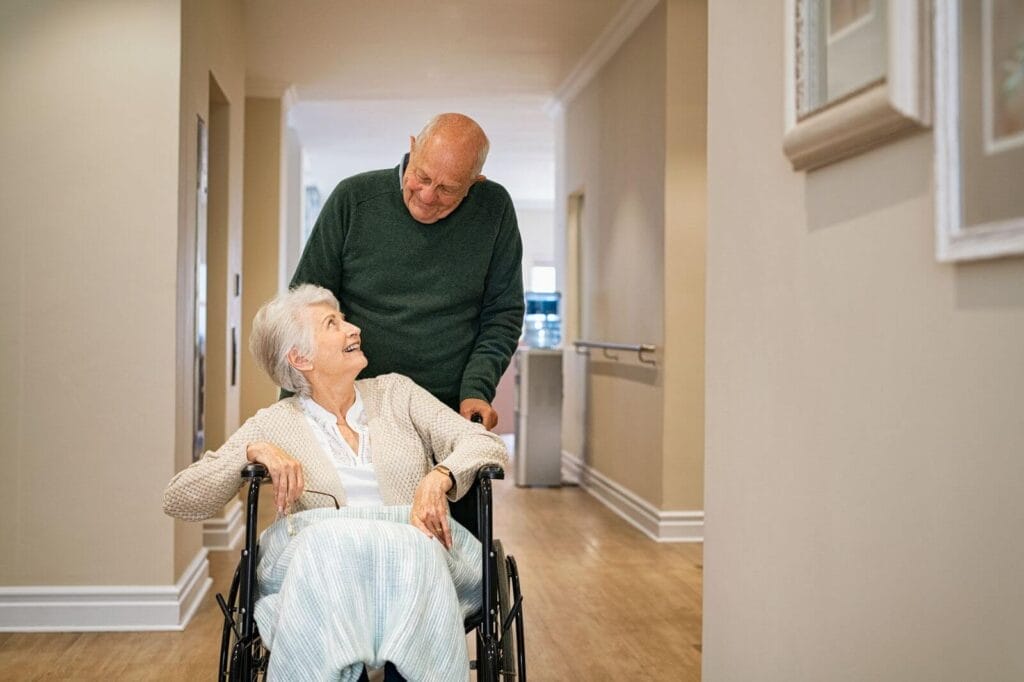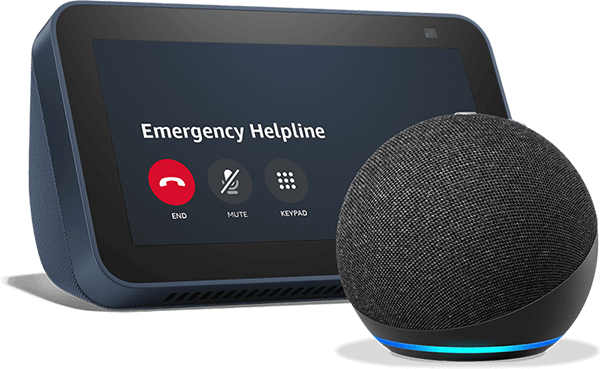
Nursing home care is expensive, with the cost reaching $100,000 or more per year in some areas of the U.S. When assets run out, it may be necessary to turn to government programs like Medicaid to help pay for care. Because qualifying for Medicaid requires an individual to have low income and few assets, many people have concerns about what will happen to their assets, income, and property — particularly when one spouse goes to a nursing home and the other lives at home. So, what happens when one spouse goes to a nursing home that is paid for by Medicaid?
Here, we briefly go over what Medicaid is and how it helps people pay for nursing home care. Then, we explain what to anticipate if one spouse must apply for Medicaid nursing home benefits and how it can impact the healthy spouse, too.
What is Medicaid?
Medicaid is a program run jointly by the federal and state governments that provides health care and long-term care services for people with low incomes. While the federal government is responsible for the overall supervision of Medicaid, each state’s government has wide latitude in running its Medicaid programs. Applicants must meet certain financial requirements to qualify. These requirements can differ from state to state, but they typically require a person to have low income and dollar amount of countable assets in order to be eligible to receive benefits.
Note that while the names sound similar, Medicaid is not the same as Medicare. While Medicaid exists to provide coverage to people with low incomes, Medicare provides health insurance coverage to people age 65 and over and individuals under age 65 with certain disabilities regardless of income and asset levels. Medicare pays very little (if anything) for long-term care services, covering only medically necessary services and only for a limited time.
Financial considerations when qualifying for Medicaid nursing home benefits
Medicaid may cover the cost of nursing home care if the person meets financial eligibility requirements and needs a nursing home level of care. Financial eligibility for Medicaid can differ from state to state. Generally, the program takes several factors into consideration, including:
- Cash, including savings and other assets.
- Social Security benefits.
- Veterans benefits.
- Employment wages.
- Pension payments.
- Interest/dividend income.
The individual may keep assets considered exempt, such as a small cash allowance, a vehicle for personal use, and a prepaid funeral.
If an individual is currently receiving Medicaid benefits for health care services or meets the criteria for eligibility for nursing home coverage based on health and financial factors, coverage is generally effective either on the date of Medicaid application or on the first day of the month of application.
On the other hand, if an individual is not currently receiving Medicaid or cannot yet qualify due to their current income and assets, they may be required to “spend down” before qualifying for Medicaid’s nursing home benefits. This means paying for their own care out of pocket until their assets have been spent down to a level that meets their state’s eligibility threshold. Assets and income must be spent on care and necessary items, though, as Medicaid prohibits gifting.
What happens when one spouse goes to a nursing home and needs Medicaid coverage
The qualification criteria can also differ somewhat based on whether an individual is single or married. The asset limits are higher for spouses than for single individuals if one spouse is applying for Medicaid and the other is not. In this instance, in most states, the at-home spouse is permitted up to $154,140 in countable assets (in 2024). This is in addition to the assets the spouse in the nursing home is allowed to keep.
With a married couple, all countable assets are considered jointly held, and therefore, they are available to be spent on the institutionalized spouse’s care, subject to certain spousal allowance limits. It does not matter if the funds are held in a joint account or in separate accounts with only one spouse’s name. All the accounts will be considered.
The healthy spouse’s assets are considered countable, even if there is a premarital agreement or they were never contributed to by the spouse in the nursing home. However, spousal impoverishment provisions allow the healthy spouse to retain a certain amount of assets and income.
With married couples, qualifying for Medicaid’s nursing home coverage can impact both spouses — not just the one who needs care — with regard to income and assets, including the couple’s home. Therefore, items to consider when one spouse needs Medicaid nursing home benefits include:
- Expenses of the stay-at-home spouse.
- Other individuals residing in the couple’s home.
- Future potential health care and long-term care needs of the healthy spouse.
Medicaid estate recovery
Another item to be mindful of when a spouse (or other loved one) has their nursing home care paid for by Medicaid is estate recovery. This refers to the process of state governments recouping money that the Medicaid program spent on care for the recipient if they are permanently institutionalized or after they have passed away.
If there is money in the recipient’s estate after they pass away, the state may attempt to recover the cost of care from there. For example, the state could place a lien on the individual’s home or other property to ensure the satisfaction of the “debt.”
It is important to note, though, that if the individual’s surviving spouse still resides in the home, it will be exempt from the estate recovery process. However, if the stay-at-home spouse passes away first, then Medicaid may require that the home be sold to pay the expenses of the spouse in the nursing home. Once these funds have been spent down, this spouse may reapply for Medicaid.
Where to go from here
Medicaid planning — including spend-down strategies — can be complex. It is important to have a good understanding of how the process works as well as resources to access, such as a Medicaid planner or an elder law attorney, if you have additional questions or concerns as you move forward. Knowing what happens when one spouse goes to a nursing home and the other does can help prepare you for what you need to do to to ensure your spouse gets the coverage and care they need.








